Conflict Zones
Gaza’s Christians mourn death of Pope Francis | Israel-Palestine conflict News
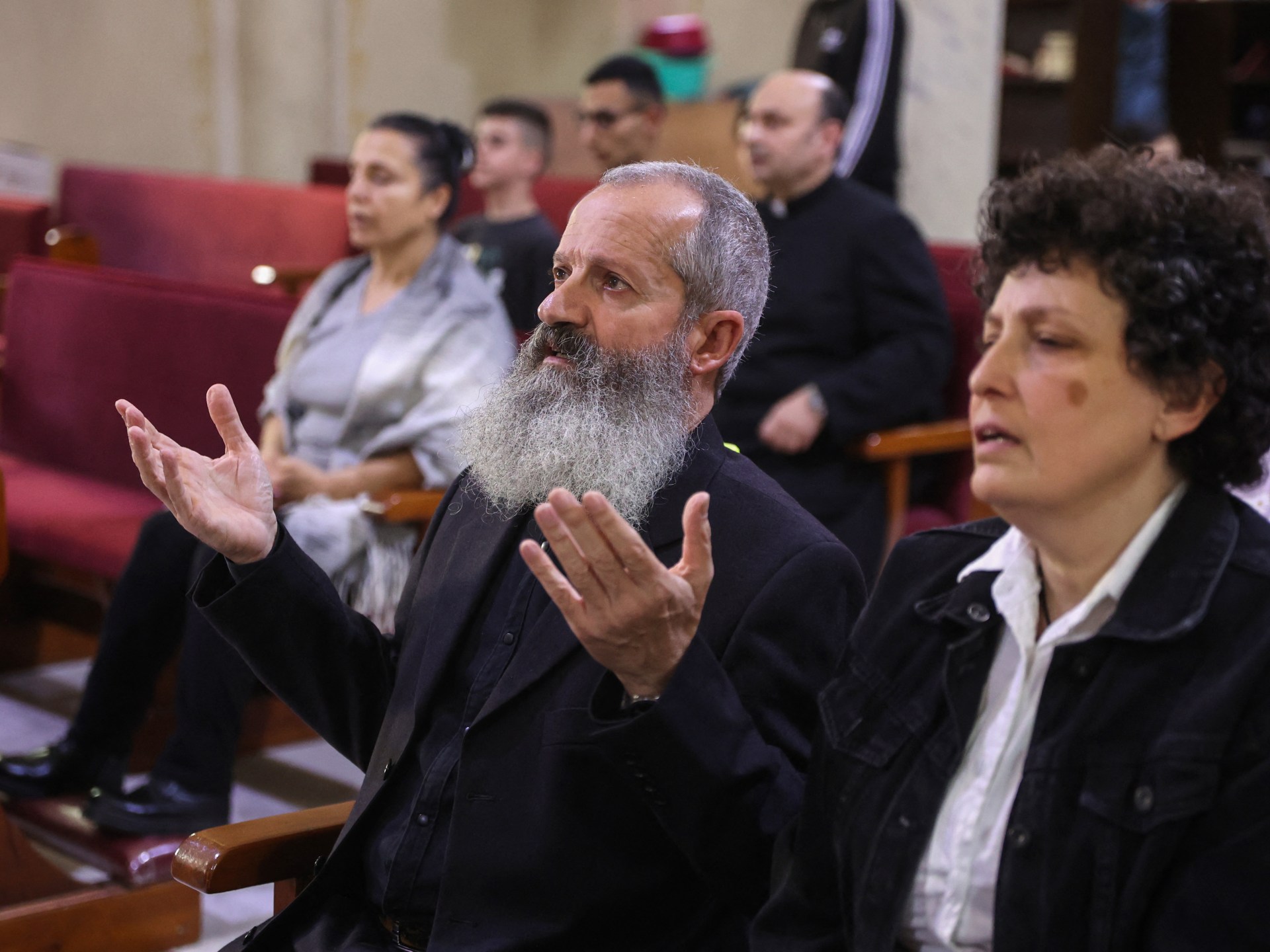
Gaza’s small Christian community is mourning the death of Pope Francis, who had maintained close and consistent video contact with the Palestinian devotees throughout the war that continues to devastate the enclave.
Since the outbreak of fighting between Israel and Hamas in October 2023, Francis had regularly called Gaza’s Christians, often several times a week, offering prayers, encouragement and solidarity.
“I always waited to hear the words of the Holy Father. I would watch him on television, and through the screens. He gave us hope with his messages and prayers,” said Elias al-Sayegh, 49, from Zeitoun.
“We felt we were alive because of his prayers and blessings. Every day, he renewed our hope for an end to the war and the bloodshed. His prayers will remain with us for peace in the land of peace, Palestine.”
“I wish I could take part in the prayers at the Church of the Nativity and the Church of the Holy Sepulchre,” he added, referring to ancient churches in Bethlehem in the occupied West Bank and Jerusalem.
“With the pope’s passing, we in Gaza feel as though a light of love and peace has been extinguished,” said 67-year-old George Ayad from al-Sahaba.
“Though the Vatican is far away, his voice always reached our hearts – he never ceased calling for peace and justice.
“Amid the pain and suffocating blockade we endured, we clung to his words as a beacon of hope. The pope never forgot Gaza in his prayers – and today, we offer ours for his soul.”
Conflict Zones
Not just Trump: Which world leaders did Pope Francis clash with? | Religion News
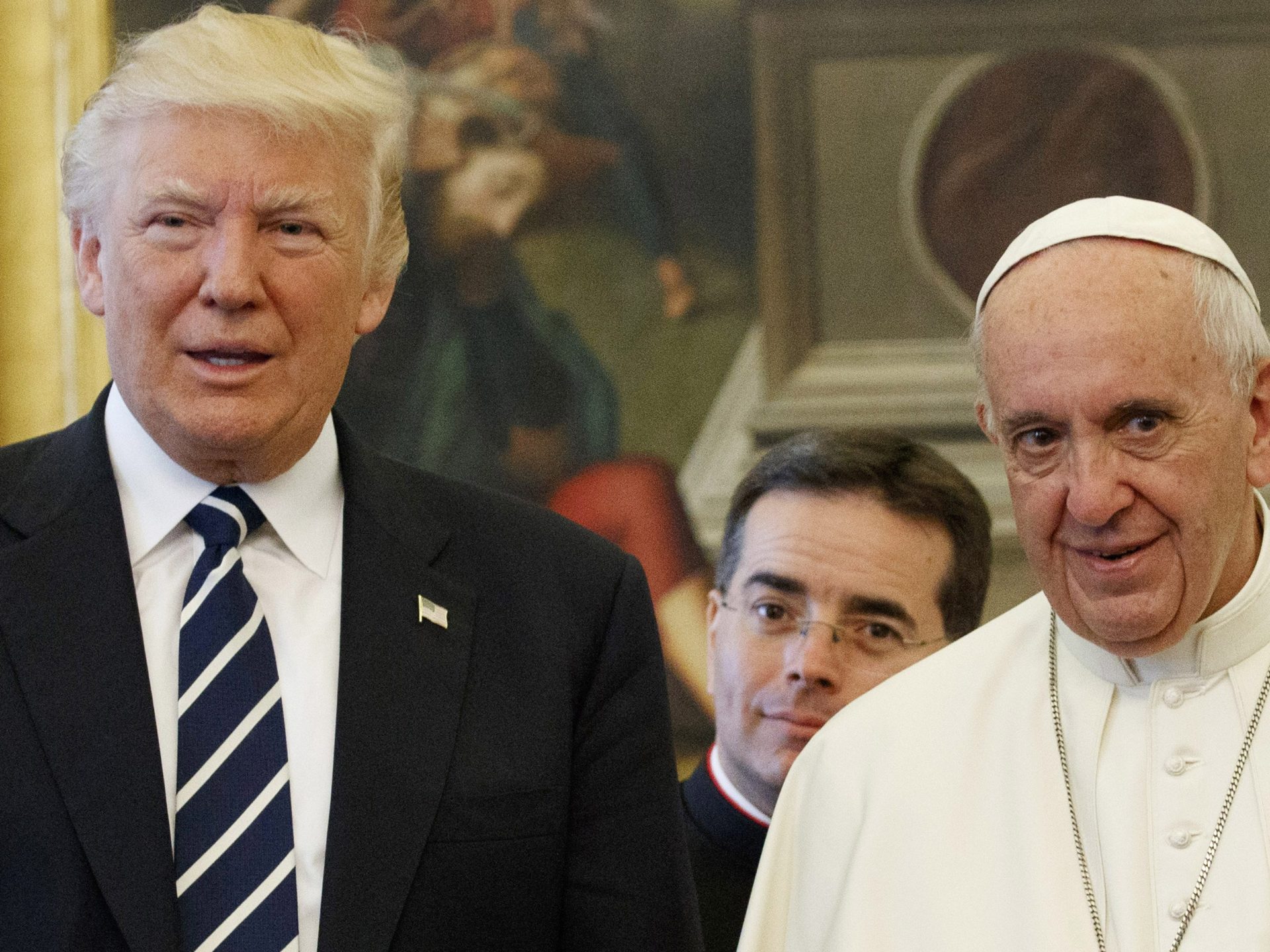
As tributes pour in from around the world for Pope Francis, who died aged 88 on Monday, the pontiff is being remembered by many for embracing communities and challenges that the Roman Catholic Church had carefully avoided previously.
However, many of those issues — among them the wars in Gaza and Ukraine, climate change and immigration — also put Francis on a collision course with several world leaders. The pope’s funeral is on Saturday in St Peter’s Square, and many world leaders – including those he locked horns with during his papacy – have said they will attend it.
So which world leaders did the pope disagree with and what were the issues that drove those differences?
Donald Trump
Francis battled with the United States president over the issue of migration for nearly a decade.
During his first presidential campaign in 2016, Donald Trump promised to build a “big, beautiful wall” along the US border with Mexico.
In February 2016 during a trip to Mexico, Francis lamented Trump’s pledge: “A person who thinks only about building walls, wherever they may be, and not building bridges is not Christian.”
Trump hit back in a statement posted on his Facebook account, saying: “No leader, especially a religious leader, should have the right to question another man’s religion or faith.
“I am proud to be a Christian and as president I will not allow Christianity to be consistently attacked and weakened.”
Trump added a hypothetical scenario involving the ISIL (ISIS) armed group: “If and when the Vatican is attacked by ISIS, which as everyone knows is ISIS’s ultimate trophy, I can promise you that the pope would have only wished and prayed that Donald Trump would have been president because this would not have happened,” Trump wrote.
Trump ran unsuccessfully for re-election in 2020 and won in a third run in 2024 on the campaign promise of carrying out “the largest deportation in American history”.
Referring to Trump’s plan for mass deportations, Francis said a day before Trump’s inauguration in January: “If it is true, it will be a disgrace because it makes the poor wretches who have nothing pay the bill for the imbalance. It won’t do. This is not the way to solve things.”
In February, the Vatican released a letter to US bishops from the pope about the deportations, which Trump had begun after taking office on January 20. While acknowledging a country’s right to safeguard itself and keep its communities safe, he remarked: “The act of deporting people who in many cases have left their own land for reasons of extreme poverty, insecurity, exploitation, persecution or serious deterioration of the environment, damages the dignity of many men and women, and of entire families, and places them in a state of particular vulnerability and defenselessness.”
After the pontiff’s death, Trump posted on his Truth Social platform: “Rest in Peace Pope Francis! May God Bless him and all who loved him!” Trump also said that he would attend the pope’s funeral with first lady Melania Trump.
Mauricio Macri and Javier Milei
Francis left his hometown, Argentina’s capital, Buenos Aires, in 2013 after he was elected pope. The pontiff made more than 45 international trips during his papacy, but Argentina was not among the countries he visited. Before becoming the pope, he was archbishop and then cardinal in Buenos Aires.
In the years that followed, he had tense relations with multiple Argentinian leaders.
Mauricio Macri, who was the centre-right president of Argentina from 2015 to 2019, never publicly clashed with the pope, but Francis was widely believed to be a critic of Macri’s austerity programmes and their impact on the poor in Argentina. When Macri visited the pope at the Vatican in February 2016, the photos of their meeting showed an unusually stern Francis, strengthening speculation of differences between them. Neither of them quashed those suggestions.
In June 2016, Macri made a donation of 16,666,000 pesos (about $15,200 at current exchange rates) to the Scholas Occurentes educational foundation backed by Francis.
However, Francis wrote to the Argentinian branch of Scholas Occurentes, asking it to return the donation.
If tensions between Francis and Macri were more subtle, current far-right President Javier Milei has been open in his disdain for the pope.
While Milei was campaigning for the presidency in 2023, he described the pope as “the representation of evil on Earth”. However, Milei’s tone towards the pontiff softened after he came to office in December 2023. In February 2024, the two met at the Vatican. Milei has said he will attend the pope’s funeral.

Milei wrote on X on Monday: “Despite differences that seem minor today, having been able to know him in his goodness and wisdom was a true honour for me.”
Jair Bolsonaro
During his papacy, Francis advocated for the protection of the Amazon rainforest, most of which is in Brazil.
Deforestation and wildfires have ravaged the rainforest in recent years, and as Brazil’s president from 2019 to 2023, Jair Bolsonaro implemented policies seen by critics as exacerbating the struggle to save it.
In 2019, the pope urged Amazonian bishops to take bold action to take care of the rainforest. “If everything continues as it was, if we spend our days content that ‘this is the way things have always been done,’ then the gift vanishes, smothered by the ashes of fear and concern for defending the status quo,” he said.
In 2020, the pope published a text on the exploitation of Indigenous people in the Amazon and the damage caused to the forest due to mining and deforestation.
“Pope Francis said yesterday the Amazon is his, the world’s, everyone’s,” Bolsonaro said in response to the text.
“Well, the pope may be Argentinian, but God is Brazilian.”
Current Brazilian President Luiz Inacio Lula da Silva said he will attend the pope’s funeral with first lady Janja Lula da Silva.
“With his simplicity, his courage and empathy, Francis brought the topic of climate change to the Vatican,” Lula said after the pope’s death.
Benjamin Netanyahu
The pope repeatedly denounced Israel’s war on Gaza, where more than 51,000 Palestinians have been confirmed killed since October 7, 2023.
But his sharpest criticism of Israeli Prime Minister Benjamin Netanyahu and the war came in November when the Italian daily La Stampa published excerpts from a new book of his.
“We should investigate carefully to assess whether this fits into the technical definition [of genocide] formulated by international jurists and organisations,” the pope said.
Israeli Minister of Diaspora Affairs Amichai Chikli described the pope’s comment as a “trivialisation of the term ‘genocide’ – a trivialisation that comes dangerously close to Holocaust denial”.
In December, the pope also called Israel’s bombardment of Gaza cruel.
An Israeli Ministry of Foreign Affairs spokesperson responded to the pope’s sentiments, saying it was “particularly disappointing as they are disconnected from the true and factual context of Israel’s fight against jihadist terrorism – a multifront war that was forced upon it starting on October 7.
“Enough with the double standards and the singling out of the Jewish state and its people.”
Netanyahu had hosted the pope in 2014, and according to the Israeli government’s website, Francis in November 2023 met with representatives of Israeli captives taken by Hamas and other Palestinian armed groups to Gaza on October 7, 2023.
Israeli President Isaac Herzog offered his condolences. “I send my deepest condolences to the Christian world and especially the Christian communities in Israel – the Holy Land – on the loss of their great spiritual father. … I truly hope that his prayers for peace in the Middle East and for the safe return of the hostages will soon be answered.”
Vladimir Putin
Russian President Vladimir Putin met Francis three times with their last meeting taking place in 2021.
In February 2022, Russia launched a full-scale invasion of Ukraine. While the pope never explicitly criticised Putin publicly, he spoke out against the war.
In May 2022, the pope chastised Patriarch Kirill of Moscow, the head of the Russian Orthodox Church, for supporting the war. “Brother, we are not state clerics. We cannot use the language of politics but that of Jesus,” the pontiff said, describing a conversation with Kirill to the Italian daily Corriere Della Sera. The pope said he had warned Kirill against becoming “Putin’s altar boy”.
Putin expressed his “deepest condolences” over the pope’s passing in a letter to Cardinal Kevin Joseph Farrell, camerlengo of the Roman Catholic Church. “Throughout the years of his pontificate, he actively promoted the development of dialogue between the Russian Orthodox and Roman Catholic Churches, as well as constructive cooperation between Russia and the Holy See,” Putin wrote.
Ukraine’s leaders
Francis also upset Ukraine’s leaders after he said during a February 2024 interview that Kyiv should have “the courage of the white flag” to negotiate an end to the war.
“Our flag is a yellow and blue one. This is the flag by which we live, die, and prevail. We shall never raise any other flags,” Ukraine’s then-foreign minister, Dmytro Kuleba wrote in a response on X.
In October after meeting Ukrainian President Volodymyr Zelenskyy, the pope said: “I appeal for the Ukrainians not to be left to freeze to death. Stop the air strikes against the civilian population, always the most affected. Stop the killing of innocent people.”
In an X post on Monday, Zelenskyy wrote about the pope: “He knew how to give hope, ease suffering through prayer, and foster unity. He prayed for peace in Ukraine and for Ukrainians. We grieve together with Catholics and all Christians who looked to Pope Francis for spiritual support.”
Zelenskyy said he will attend the pope’s funeral.
Catholic Church
The pope also criticised his own institution.
In 2022, the pope apologised for the “cultural genocide” of Canada’s Indigenous population during a visit to the country.
From the 1800s to the late 1990s, the Canadian federal government took at least 150,000 children belonging to First Nations, Metis and Inuit communities to residential schools to erase their cultures and languages. Most of these schools were run by the Catholic Church.
“I am sorry. I ask forgiveness, in particular, for the ways in which many members of the church and of religious communities co-operated, not least through their indifference, in projects of cultural destruction and forced assimilation promoted by the governments of that time, which culminated in the system of residential schools,” Francis said.
However, his refusal to call what the church did “cultural genocide” drew criticism from some First Nations leaders.
What were other contentious moments for the pope?
In November 2017, the pope visited Myanmar and did not explicitly acknowledge the Rohingya community, for which he drew criticism. A month later, during a December visit to Bangladesh, the pope acknowledged the persecuted community, saying: “The presence of God today is also called Rohingya.”
In August 2017, thousands of members of the Muslim-majority Rohingya community were forced to flee Myanmar during a military crackdown. As of 2024, nearly one million Rohingya are in Bangladesh, according to United Nations figures. Myanmar does not acknowledge the Rohingya as an ethnic group and denies the group citizenship.
Conflict Zones
After a year of hostility, Pakistan and Afghanistan seek diplomatic reboot | Taliban News
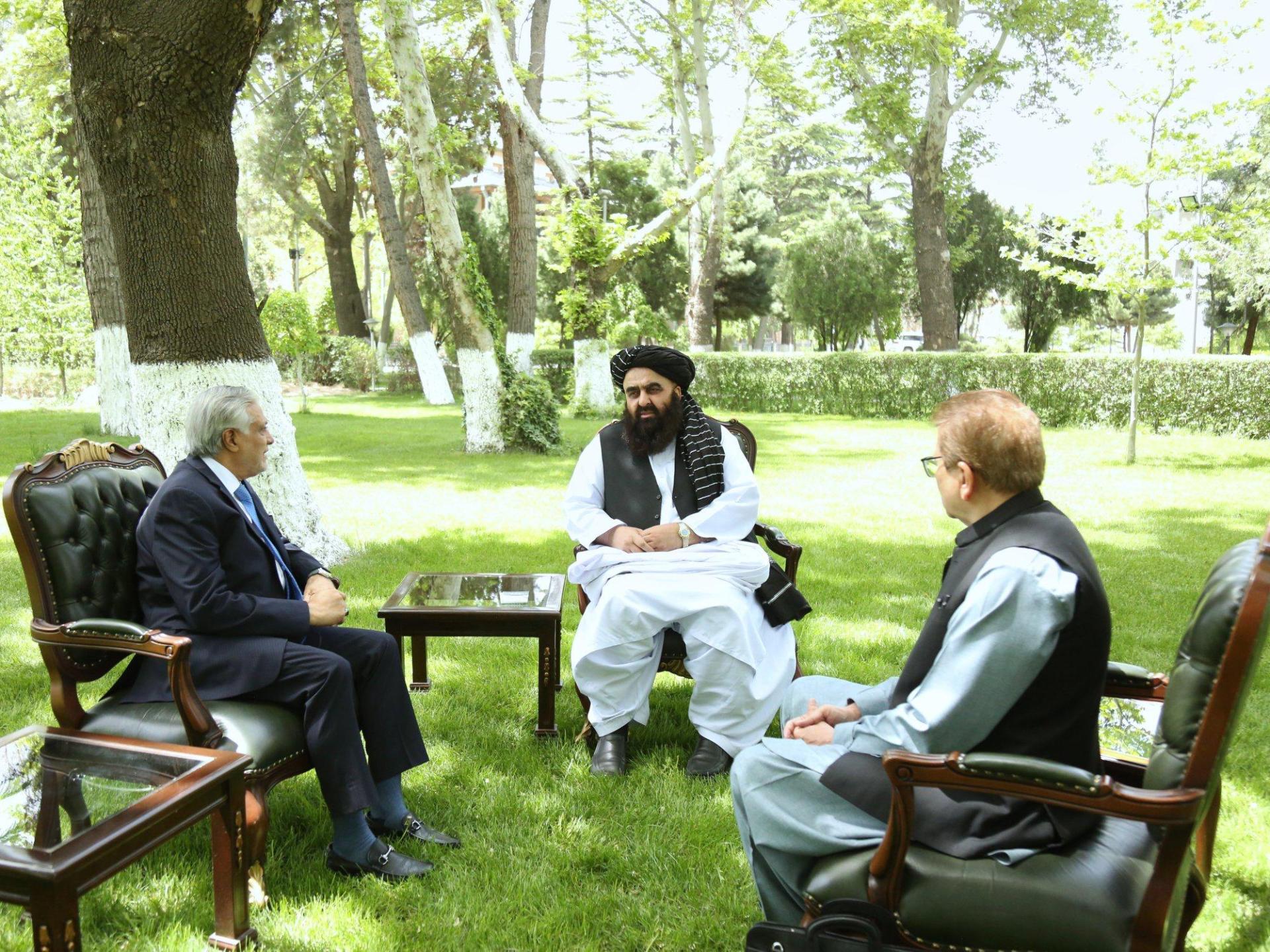
Islamabad, Pakistan – When Pakistan’s Deputy Prime Minister and Foreign Minister Ishaq Dar landed in Kabul on April 19 for a daylong visit, it marked the first major trip by a senior Pakistani official to Afghanistan since February 2023.
Dar’s visit came just days after senior military and intelligence officials from both countries had met in Kabul for the first time since January 2024.
These meetings follow months of strained relations between the neighbours amid frequent border skirmishes, Pakistan’s decision to expel Afghan refugees, and repeated border closures that have disrupted business and trade.
Dar’s trip, say analysts, signals a willingness from both sides to reset ties through diplomacy.
According to Pakistan’s Ministry of Foreign Affairs, Dar met Afghanistan’s interim foreign minister, Amir Khan Muttaqi. The two leaders held discussions on “security, trade, transit, connectivity, and people-to-people contacts”.
The statement from the Afghan Foreign Ministry, however, did not mention security concerns and focused on issues such as “situation of Afghan refugees, political relations, economic cooperation, trade, transit, large-scale joint projects, and other matters of mutual interest.”
At a news conference in Kabul following his meeting with Muttaqi, Dar said Pakistan has invited Afghan officials to Islamabad and called for open communication channels to resolve disputes between the two countries.
“We have requested our hosts that we have to work together for the progress, betterment and peace and security of the region. For that, neither will we allow anyone to use our soil to conduct illicit activities in Afghanistan, nor will you allow anyone to use your soil,” Dar said.
Security concerns after 2021
Since the Taliban took control of Afghanistan in August 2021 after the United States withdrew its troops, Pakistan has witnessed a sharp increase in violent attacks, particularly in the northwestern province of Khyber Pakhtunkhwa and the southwestern province of Balochistan, both of which share borders with Afghanistan.
Islamabad has repeatedly alleged that Afghan soil is being used by armed groups, especially the Pakistan Taliban, known by the acronym TTP, to launch attacks across the porous border.
Pakistan Taliban, founded in 2007, is ideologically aligned with the Taliban in Afghanistan but operates independently. The Taliban has repeatedly rejected allegations that it allows its soil to be used for attacks against Pakistan, and has consistently denied any ties with the TTP.
Data from the Pak Institute For Peace Studies, an Islamabad-based conflict research organisation, shows that Pakistan experienced 521 attacks in 2024, a 70 percent increase from the previous year.
These incidents claimed 852 lives, a 23 percent rise, with 358 of those killed being law enforcement personnel. Most of the violence occurred in Khyber Pakhtunkhwa and Balochistan.
Once seen as a benefactor of the Taliban, Pakistan has cited the uptick in violence as the main reason for its crackdown on hundreds of thousands of Afghan refugees, many of whom have lived in the country for decades.
Pakistan has hosted millions of Afghan refugees since the Soviet invasion of Afghanistan in 1979, welcoming several waves of displaced people as conflict continued in the country.
Following the 9/11 attacks and the subsequent US invasion of Afghanistan, thousands of Afghans returned home. However, the Taliban’s dramatic return to power in August 2021 prompted another wave of displacement, with between 600,000 and 800,000 people seeking refuge in Pakistan.
Since the expulsion programme began in November 2023, nearly one million Afghan nationals have been forced to return, with the Pakistani government declaring that it would continue its repatriation drive.
Global rights organisations, as well as the Afghan government, have urged Pakistan to reconsider the decision and ensure the dignity of those being deported.
Revival of diplomatic ties?
Despite rising hostilities between the two countries, including Pakistani air attacks on Afghan soil in December that killed at least 46 people, analysts see Dar’s visit as “significant” and suggestive of a broader resumption of dialogue.
Iftikhar Firdous, co-founder of The Khorasan Diary, a portal that tracks regional security issues, pointed out that this was the highest-level visit from Pakistan to Kabul since former Prime Minister Imran Khan’s trip in November 2020.
“The visit by Dar included discussions on security, ease of business for traders, and continued conversations on cross-border issues,” Firdous told Al Jazeera.
The Islamabad-based analyst added that the recent meeting between military and intelligence officials indicates that backchannel efforts to resurrect diplomacy were under way even before Dar’s trip.
“It was not a start, but instead a culmination of the agenda to re-engage with Afghanistan and break the ice,” he said.
Amina Khan, director of the Centre for Afghanistan, Middle East and Africa at the Institute of Strategic Studies Islamabad (ISSI), said both sides appear to be looking for ways to accommodate each other’s concerns.
“For Pakistan, it is security, and for Kabul, it is trade. However, since both are intertwined, a comprehensive bilateral approach is needed. This trip appears to have initiated a dialogue. One will have to see if both sides can maintain the positive momentum,” she told Al Jazeera.
Khan added that Pakistan recognises the importance of Afghanistan to its own stability.
“Pakistan realises that, in order to achieve this, workable ties with Kabul are paramount, but at the same time it is pivotal for Kabul to address Pakistan’s security concerns emanating from the TTP,” she said.
A United Nations report [PDF] published in February concluded that the Taliban continued to provide logistical, operational and financial support to the TTP. It added that the armed group has set up new training centres in border regions near Pakistan.
In response, Zabihullah Mujahid, the Afghan government spokesperson, denied the allegation, calling it a “regular slander” against the country.
“The stance of the UN is misused. We call on the countries who are members of the UNSC but have good relations with Afghanistan to not allow the reputation of the organization to be harmed,” Mujahid said in February.
On the same page?
Khan of ISSI said the Taliban faces its own challenges while dealing with armed groups like the Pakistan Taliban.
“Pakistan understands the limitations of the Afghan Taliban in taking action against the TTP, who may very well join the ranks of so-called ISIS [ISIL] and take up arms against the government,” she said.
Meanwhile, the Taliban has stressed that the Afghan government is unhappy about the eviction of hundreds of thousands of Afghans by Pakistan.
Raising the issue of their forced repatriation in the meeting with Dar, Minister Muttaqi stressed the need for humane treatment and urged Pakistani authorities to protect the rights of Afghan nationals currently residing in Pakistan or returning from there.
The Pakistan Foreign Ministry statement, meanwhile, focused on the country’s security concerns.
“The Deputy Prime Minister emphasised the paramount importance of addressing all pertinent issues, particularly those related to security and border management, in order to fully realise the potential for regional trade and connectivity,” the ministry’s statement read.
Still, Khan, the analyst, said she believes that Dar’s visit has broken the ice. Now, the key will be to “remain engaged” and pursue a holistic approach to bilateral relations, she said.
“While security is a crucial aspect, it should not be the sole focus. Other aspects, such as diplomatic, economic, and cultural cooperation, must also be considered to build a balanced and sustainable partnership,” Khan said.
Conflict Zones
Away from the global spotlight, Eritreans are trapped in a garrison state | Conflict
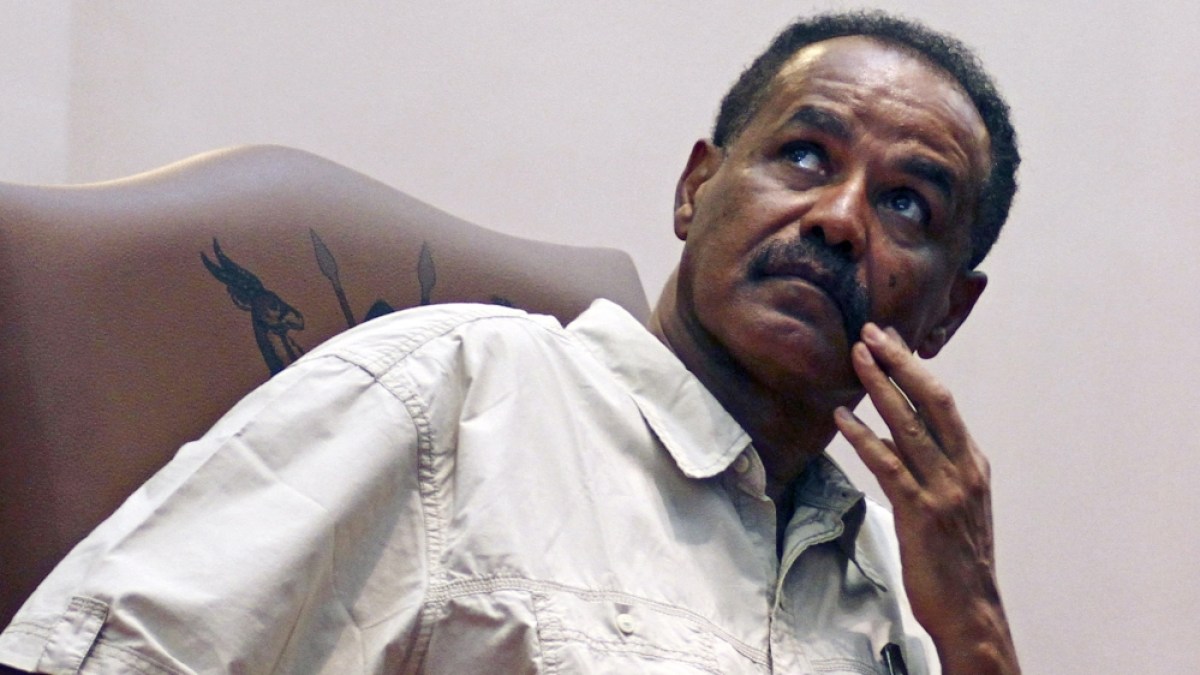
American writer and security analyst Paul B Henze, who served in the Carter administration as a deputy to National Security Adviser Zbigniew Brzezinski, once made a very astute observation about Eritrea’s current president, Isaias Afwerki.
In his 2007 book, Ethiopia in Mengistu’s Final Years: Until the Last Bullet, he noted “Isaias impressed me as remarkably similar in temperament and attitudes to Mengistu [Haile Mariam, Eritrea’s former dictator who has overseen the killings of tens of thousands of opposition figures and civilians]. He has many of the same mannerisms, a rather bulldoggish seriousness, a defensiveness behind a facade of feigned reasonableness that is not really convincing. One senses a stubborn, fundamentally authoritarian personality.”
The similarities Henze saw between Mengistu and Isaias have proven correct and highly consequential over the last three decades.
After declaring victory against the Mengsitu regime in 1991, Isaias was able to oversee the emergence of an independent, sovereign Eritrea. For a brief moment, Eritreans were full of hope. They assumed independence would bring more freedom and better economic prospects. There was talk of turning Eritrea into Africa’s Singapore.
However, the euphoria of independence was short-lived. The dream of transforming Eritrea into a prosperous liberal democracy did not appeal to Isaias. He wanted his country to resemble not Singapore, but Sparta. He rejected the democratic constitution drafted by the pre-eminent Eritrean jurist Bereket Habte Selassie and ruled Eritrea with an iron fist.
In no time, he turned Eritrea into a garrison state. He transformed Eritrean institutions and society at large into tools to fulfil his geo-political fantasies. Eritreans became unwilling pawns in the president’s many military schemes, with no space left for their personal dreams and aspirations.
Isaias ruthlessly dealt with even his closest colleagues and allies who dared to suggest that Eritreans enjoy some basic liberties that people elsewhere in the world often take for granted.
In May 2001, 15 senior Eritrean officials, many of whom had been on the president’s side throughout the independence war, issued an open letter urging him to reconsider his autocratic mode of governance and hold free and fair elections. At the time, three of the 15 officials were living abroad, and one eventually changed his position and rejoined the Isaias government. The remaining 11, however, were swiftly arrested on unspecified charges. More than 20 years later, the fates of these 11 men are still unknown. No one knows for sure if they are alive or dead. No legal or religious counsel or family member has been granted access to them. There have been no charges, no trials, no conviction and no sentence.
Though these senior officials are among the most prominent in Eritrea to be meted such treatment, their fate is hardly unique. Anyone in Eritrea who dares to question the great wisdom of the infallible President Isaias meets the same fate.
In the nightmarish gulag state that President Isaias created, no one is free to study, work, worship, run a business or engage in any other normal activities. There is a mandatory and indefinite military service which keeps every Eritrean citizen in servitude to the supreme leader for their entire lives.
While everyone in Eritrea suffers from Isaias’s institutionalised tyranny, religious and ethnic minorities suffer the most. Religious persecution in the country is so extreme that in 2004 the US Department of State designated Eritrea as a “country of particular concern” under the International Religious Freedom Act of 1998. There is also significant ethnic persecution in Isaias’s Eritrea. In a May 2023 report, for example, UN Special Rapporteur on the situation of human rights in Eritrea, Mohamed Abdelsalam Babiker, underlined the harsh conditions faced by the Afar community who inhabit the Dankalia area of the country. Babiker wrote: “The Afar are one of the most disenfranchised communities in Eritrea. For several decades, they have been subjected to discrimination, harassment, arbitrary arrests, disappearance, violence, and widespread persecution.”
In the end, Paul Henze’s insight about the fundamentally autocratic personality of Isaias proved not only right, but also an understatement. The oppression and violence of Isaias’s rule in the past three decades matched and at times surpassed that of Mengitsu.
Regrettably, the world rarely acknowledges the plight of Eritreans, who are forced to live their lives as unwilling servants and soldiers of their authoritarian president. The toll of Isais’s endless war schemes on Eritreans is still rarely mentioned in discussions about the region.
Eritrea under Isaias is a country always on a war footing. Right now, it is not only agitating against Ethiopia, but also actively involved in the civil war in Sudan. In fact, one would be hard-pressed to find a period in Eritrea’s post-independence history that it was not at war with one of its neighbours, or involved in some regional conflict or civil war. War is the modus vivendi of President Isaias.
The world is now paying some attention to Eritrea, because of the looming risk of conflict with Ethiopia. But even if conflict between the two neighbours is somehow prevented, the misery of Eritreans stuck in Isaias’s garrison state will continue. Forgotten and left to their own devices, Eritreans will continue to suffer in a brutal dictatorship where the individual is seen just as fodder for the mighty Eritrean Defence Forces. This must not be allowed to continue. The world must not avert its gaze and forget about the plight of Eritreans once their country is no longer mentioned in the news. The world needs to act before more Eritreans lose their lives and dreams fighting in Isaias’s forever wars.
The views expressed in this article are the author’s own and do not necessarily reflect Al Jazeera’s editorial stance.
-

 Europe11 hours ago
Europe11 hours agoSimone Biles, Mondo Duplantis win big at 25th Laureus World Sports Awards
-
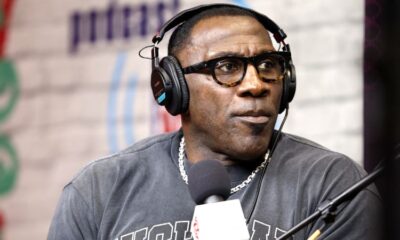
 Sports14 hours ago
Sports14 hours agoShannon Sharpe: Pro Football Hall of Famer and podcast star sued for sexual assault and battery
-

 Sports2 days ago
Sports2 days agoNBA Playoffs: Steph Curry leads Golden State Warriors to Game 1 win and more from Sunday’s action
-

 Sports14 hours ago
Sports14 hours agoSharon Lokedi smashes women’s course record at the Boston Marathon, John Korir wins men’s race
-
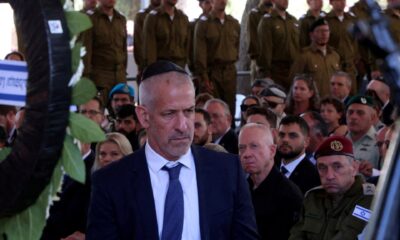
 Middle East9 hours ago
Middle East9 hours agoIsraeli spy chief accuses Netanyahu of demanding illegal operations | Politics News
-
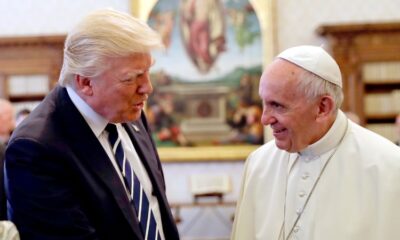
 Europe1 day ago
Europe1 day agoTrump and Francis, both elected as outsiders, sparred from afar on policy and diverged on leadership style
-

 Sports1 day ago
Sports1 day agoHolger Rune stuns Carlos Alcaraz to win Barcelona Open and end two-year trophy drought
-
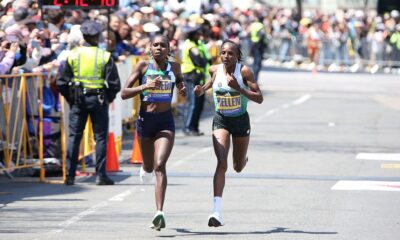
 Africa14 hours ago
Africa14 hours agoKenyan runners win both male and female races at Boston Marathon 2025




